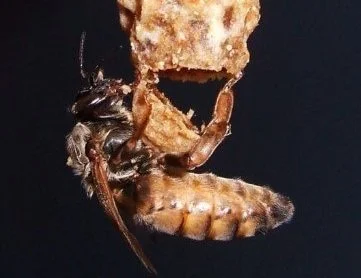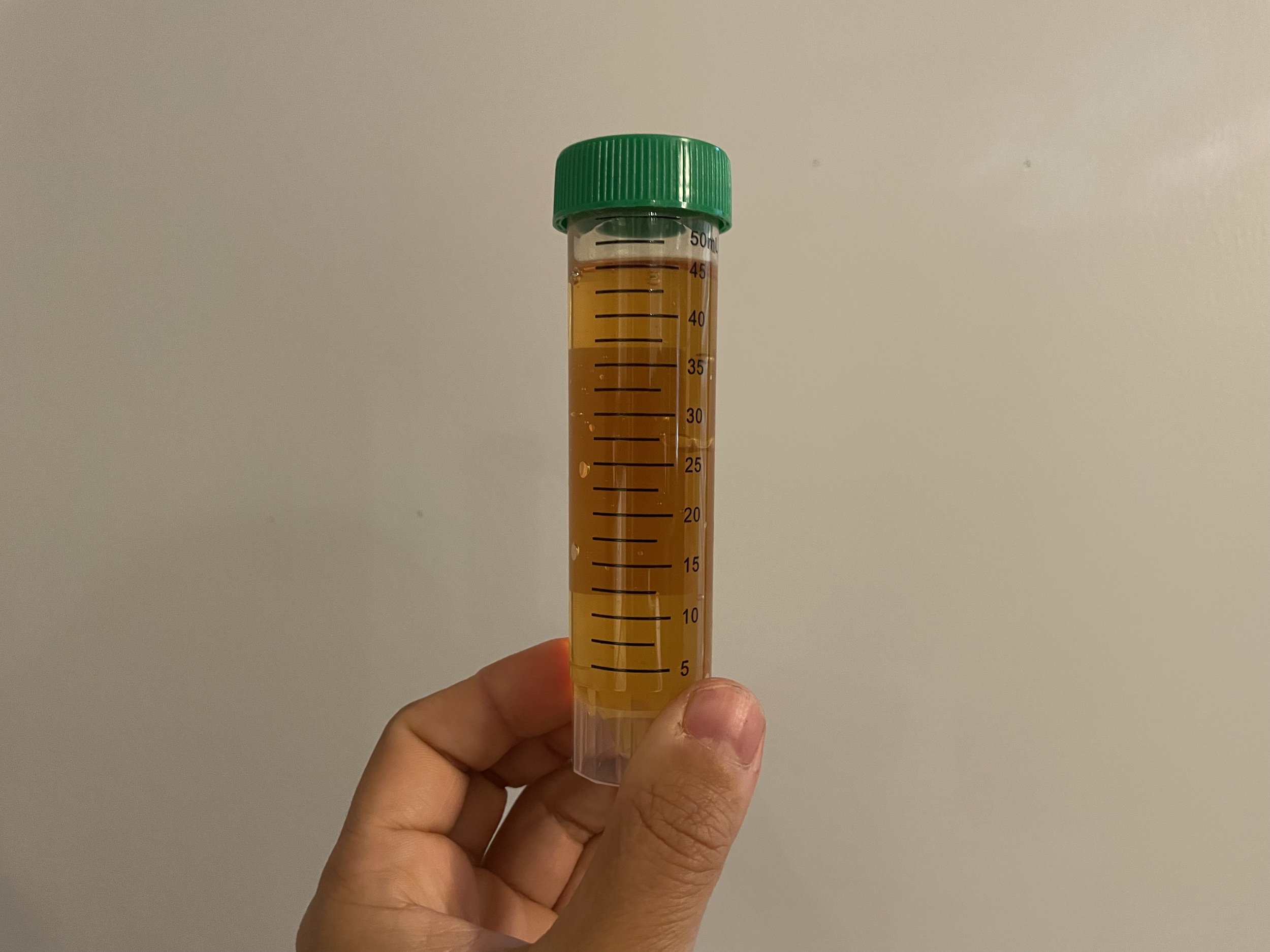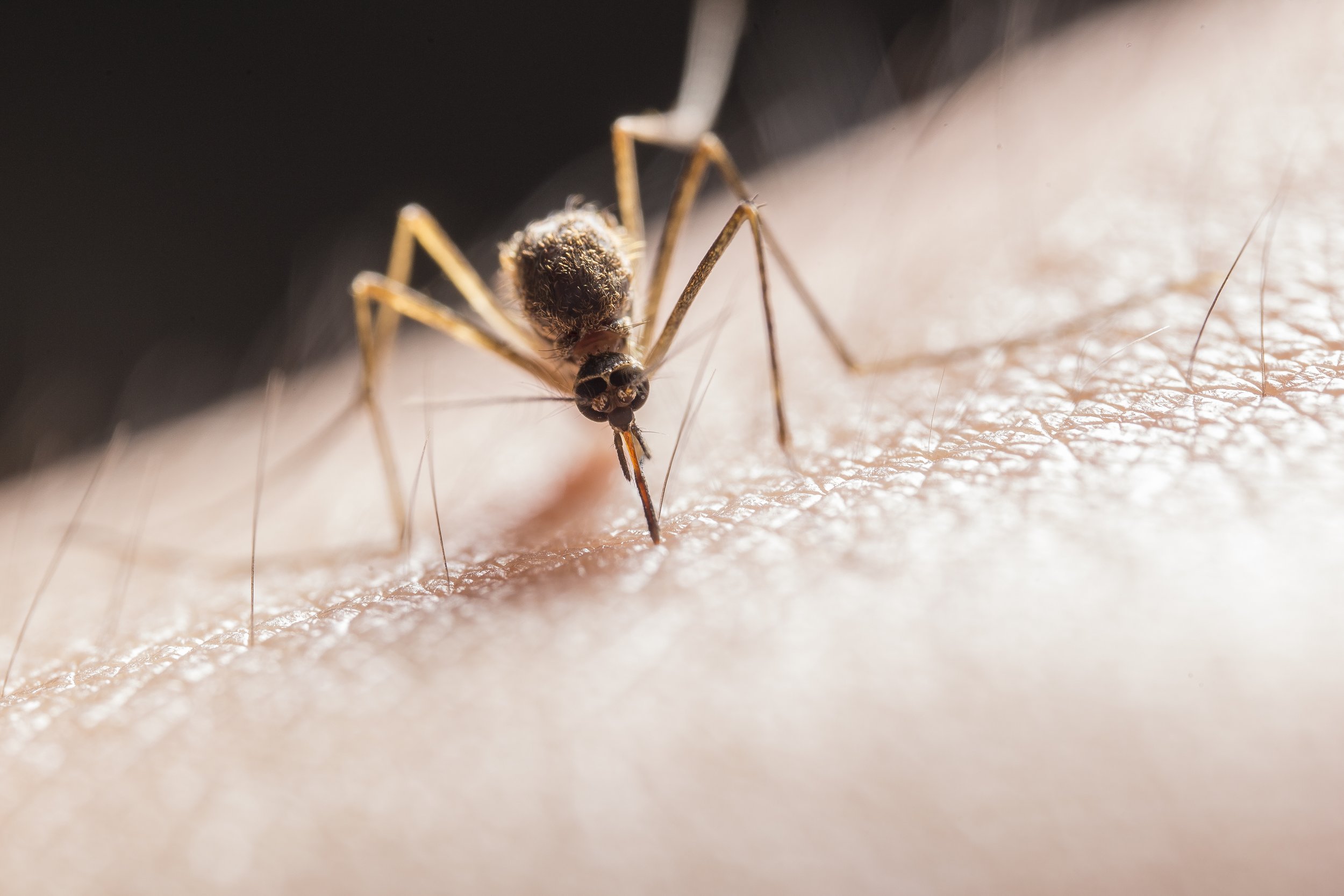Honey Bee Sensory Superpowers: Magnetoreception
Discover the hidden “sixth sense” of honey bees! Beyond their familiar sight, smell, and touch, bees can detect Earth’s magnetic field—a remarkable ability called magnetoreception. This sense helps them navigate, forage efficiently, return to the hive, and even communicate with their colony. Dive in to explore how this subtle yet powerful skill shapes bee behavior and underscores the incredible sophistication of these tiny navigators.
Smartphone vs. Mites: What We Learned from Testing the BeeScanning App
Can your smartphone really detect Varroa mites? We put the BeeScanning App to the test to find out. In this post, we break down what worked, what didn’t, and why hands-on mite testing still matters. From false positives to surprising misses, here’s what we learned in our real-world trial.
Honey Bee Sensory Superpowers: Hearing
Step inside the dark world of the honey bee hive, where communication goes far beyond what we initially observed. This post explores how bees rely on sound vibrations to navigate their complex social lives—offering a deeper look at the hidden language of the hive.
Honey Bee Sensory Superpowers: Sight
Honey bees see the world in ways we can’t imagine—with two compound eyes and three ocelli—that detect color, motion, ultraviolet light, and sunlight intensity. In this post, we’ll explore how their remarkable vision helps them find flowers, navigate their environment, and thrive outside the hive.
Temperature Duality: The Heterothermic Mastery of Honey Bees
Honey bees are masters of temperature control, thriving in both extreme heat and cold to protect their hive, queen, and brood. In this blog, discover how bees function as heterotherms, using evaporative cooling, social thermoregulation, and individual heat generation to maintain ideal hive temperatures year-round.
From Hive to Hand: Alex Mulholland’s Beeswax Processing Journey
Discover how excess wax cappings from the honey extraction process were transformed into beautifully filtered beeswax bars! One of our amazing hosts shared their fascinating journey, offering behind-the-scenes details and stunning photos that showcase the transformation from start to finish.
From Resin to Remedy: How Honey Bees Craft and Use Propolis
Discover the incredible world of propolis, the "bee glue" that does far more than just seal cracks in a hive. This sticky, antimicrobial substance helps bees regulate humidity, defend against pathogens, and maintain a healthy colony. In this blog, we dive into how bees collect and transform resin, the fascinating chemistry behind propolis, and its powerful benefits for both bees and humans.
Bees at Work: The Wonders of Wax
Beeswax comb is an architectural marvel that is adaptable, intricate, and highly efficient. In this blog, we explore how honey bees construct their comb, the unique properties of beeswax, and the genius behind their hexagonal cells, while also delving into the mystery of non-hexagonal shapes and sizes.
Host Spotlight: Amy Singleton
Amy is one of our lovely Buddha Bee hosts who has been with us since 2021. This short testimonial dives into Amy's inspiring journey, where her love for beekeeping and involvement with Buddha Bee truly shines!
Beekeeper Spotlight: Hilary Kearney of Girl Next Door Honey
This month’s blog highlights an interview with Hilary Kearney from Girl Next Door Honey. Known for her dedication to natural beekeeping practices, Hilary’s business provides expert education, meticulous hive management, and live bee removals. Delve into her latest book, Heart of the Hive, to uncover captivating insights into bee behavior and biology, beautifully enhanced with stunning photographs by the acclaimed Eric Tourneret.
Is Honey Just Bee Vomit? An In-depth Look into How Honey is Made and Harvested
Explore the origins of honey: from the intricate processes carried out by bees as they transform nectar into honey, to the careful extraction methods employed by beekeepers to harvest this precious product.
Beyond Honey Bees: The Secret Lives of Solitary Bees
Immerse yourself in the intricate world of native bees! This blog explores their social structures, nesting behaviors, and floral preferences, showcasing their essential role in the natural world.
Did the Bees Need Eclipse Glasses too?
Honey, Honey Bees, and Eclipses – A Conversation with Dr. Ferhat Ozturk, Assistant Professor of Practice in Integrated Biology at the University of Texas at San Antonio.
Re-visiting Our Impact on Native Pollinators
Explore the ways Buddha Bee Apiary is consciously considering native pollinators in our beekeeping practices.
The Caste System of Honey Bees
Ever wondered about the social structure of honey bees? Read this article to dive into this well-known controversy among beekeepers!
Local honey vs store-bought: what a DNA test revealed
Read how two honey samples—one local and the other from a store—underwent DNA testing to uncover the plant species present.
All about honey bee swarms (and what to do if you see one)
What is a swarm and why do bees do it? Get all your swarm questions answered in this deep dive.
3 methods to control mosquitoes without harming bees
Looking for bee-safe mosquito treatment? Here are three tips to control mosquitos without toxic sprays that harm pollinators and other wildlife.
5 books worth reading if you love bees
In this article, our operations manager shares his five favorite books from this year. The topics range from beekeeping to climate change to seed saving!
The best beekeeping supply stores in Raleigh, Durham, and Chapel Hill
Whether you need woodenware or glass jars, we put together a list of the beekeeping stores in Raleigh to help you buy what you need locally.




















